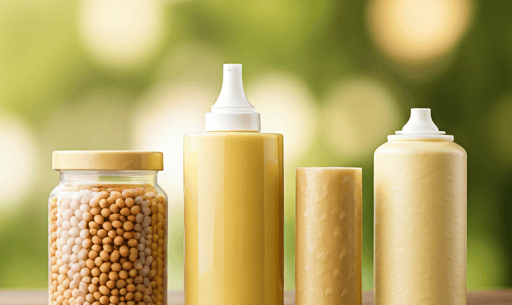Home Compostable Adhesives for Food Packaging: Innovation by University of Georgia
PACKAGINGSUSTAINABILITY


Adhesives are integral to numerous industries, from packaging and labeling to electronics and consumer goods. However, the environmental impact of traditional adhesives, primarily composed of non-biodegradable materials, is a growing concern. These adhesives persist in the environment, contributing to long-term waste. Addressing this issue, researchers at the University of Georgia has been granted a patent on home compostable adhesive that combines the performance of conventional adhesives with an environmentally friendly, biodegradable design.
This innovation is based on a polyester formulation tailored for compostability. Unlike traditional adhesives, this new material consists of environmentally friendly components that decompose into benign substances upon disposal. Its formulation includes:
Diols: A combination of 1,3-propanediol and 1,4-butanediol.
Dicarboxylic Acids: Succinic acid and glutaric acid, providing the necessary structural framework.
Sugar Residues: Sorbitan monooleate or similar compounds, enhancing the adhesive’s flexibility and biodegradability.
The adhesive offers a balance of durability, flexibility, and environmental sustainability. Its carefully calibrated composition ensures optimal performance. For example, the molar ratios of 1,4-butanediol to 1,3-propanediol (4:1 to 7:1) and succinic acid to glutaric acid (1:1 to 1:5) are engineered to deliver good adhesion while maintaining compostability. With a glass transition temperature of less than 25°C and a crystallinity below 10%, the adhesive is designed to be pliable during use and decompose efficiently in composting conditions.
One of the most significant advantages of this adhesive is its wide-ranging applicability. It can be used in food packaging systems, where labels coated with this adhesive adhere securely to surfaces while ensuring that both the label and adhesive break down during composting. Other uses include pressure-sensitive applications like tapes and general-purpose adhesives for consumer products. By eliminating the need for additional polymers, solvents, or tackifiers, the adhesive also reduces production complexity and its overall environmental footprint.
This invention has the potential to revolutionize industries reliant on adhesives. By offering a compostable alternative, it aligns with global sustainability goals and helps reduce reliance on petroleum-based materials. For industries like food packaging, where waste is a significant concern, this adhesive can be a game-changer, offering both functionality and environmental stewardship.
